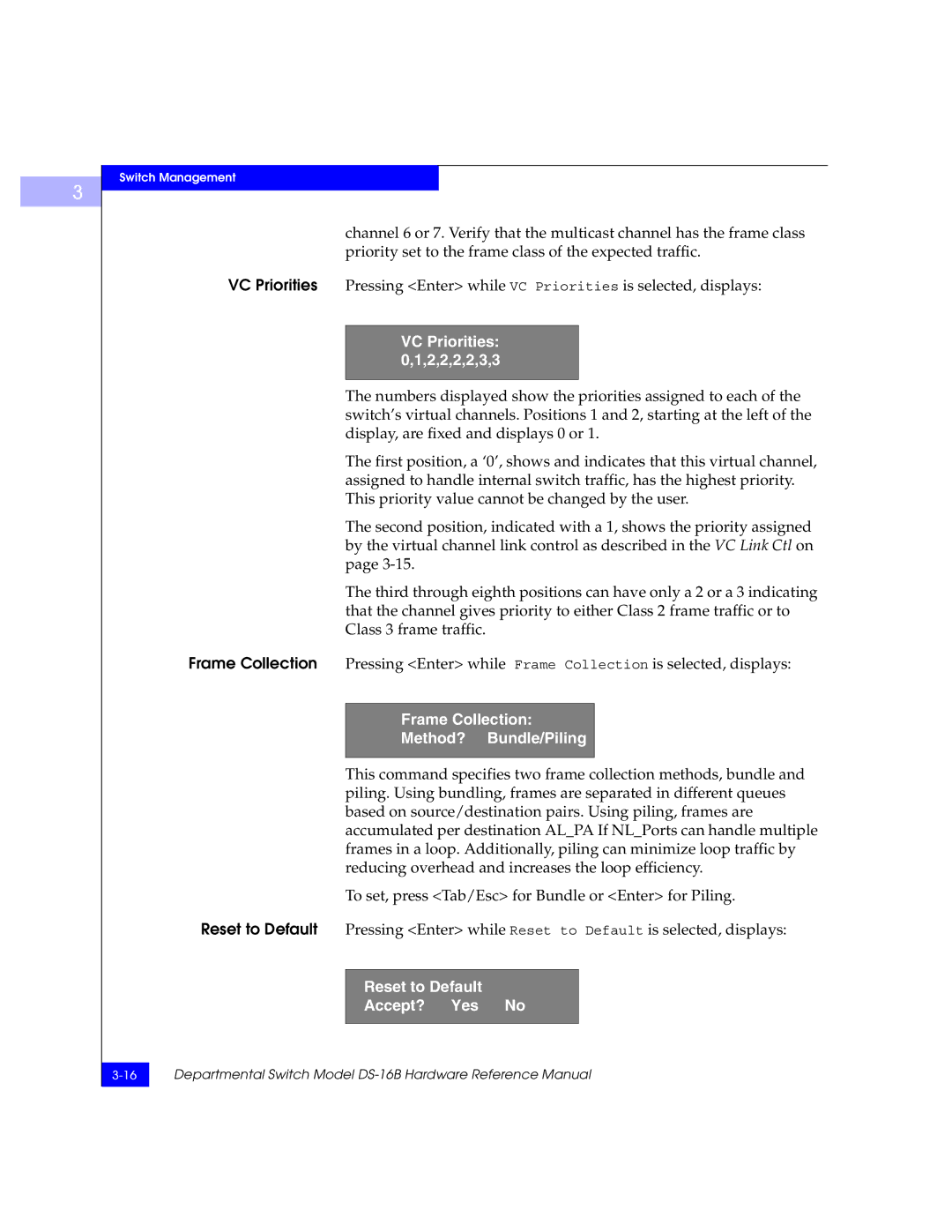
Switch Management
channel 6 or 7. Verify that the multicast channel has the frame class priority set to the frame class of the expected traffic.
VC Priorities Pressing <Enter> while VC Priorities is selected, displays:
VC Priorities: 0,1,2,2,2,2,3,3
The numbers displayed show the priorities assigned to each of the switch’s virtual channels. Positions 1 and 2, starting at the left of the display, are fixed and displays 0 or 1.
The first position, a ‘0’, shows and indicates that this virtual channel, assigned to handle internal switch traffic, has the highest priority. This priority value cannot be changed by the user.
The second position, indicated with a 1, shows the priority assigned by the virtual channel link control as described in the VC Link Ctl on page
The third through eighth positions can have only a 2 or a 3 indicating that the channel gives priority to either Class 2 frame traffic or to Class 3 frame traffic.
Frame Collection Pressing <Enter> while Frame Collection is selected, displays:
Frame Collection:
Method? Bundle/Piling
This command specifies two frame collection methods, bundle and piling. Using bundling, frames are separated in different queues based on source/destination pairs. Using piling, frames are accumulated per destination AL_PA If NL_Ports can handle multiple frames in a loop. Additionally, piling can minimize loop traffic by reducing overhead and increases the loop efficiency.
To set, press <Tab/Esc> for Bundle or <Enter> for Piling.
Reset to Default Pressing <Enter> while Reset to Default is selected, displays:
